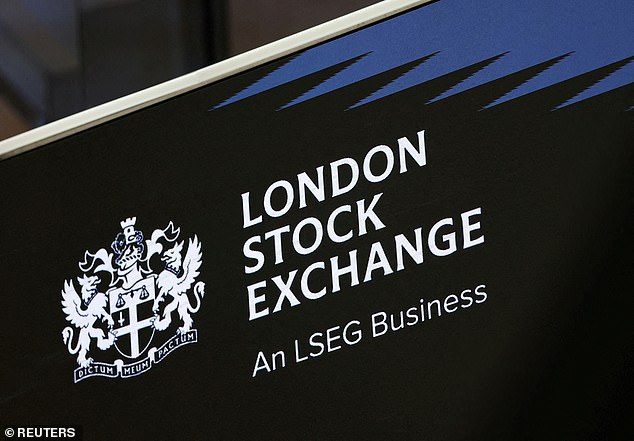At a time when global capital continues to chase Silicon Valley valuations and the so-called ‘Magnificent Seven’ of US tech, a quieter outperformance is unfolding much closer to home.
UK equity investment trusts, long overlooked and often dismissed, are not only holding their ground but delivering total returns well ahead of the FTSE All-Share Index and paying dividends that leave even the most celebrated American stocks looking stingy.
Stifel’s latest note on the UK Equity Income and UK All Companies sectors points to a standout 12 months.
Of the 19 trusts surveyed, 14 posted net asset value (NAV) total returns exceeding 20 per cent.
Nearly three-quarters have also outperformed the FTSE All-Share over six months.
These are not flukes driven by short-term speculation but by seasoned active managers tapping into consistent dividend income and undervalued sectors across the UK market.

UK equity trusts are beating the wider market this year
In a year where the FTSE All-Share delivered a 21 per cent total return, trusts such as Temple Bar (+32.3 per cent NAV TR), Lowland (+27 per cent), Law Debenture (+27.2 per cent) and City of London (+23.9 per cent) demonstrate the potency of active management, particularly when it leans into value and recovery themes.
‘The UK equity sector continues to offer an attractive opportunity,’ say analysts Iain Scouller and William Crighton.
‘Many trusts are trading at high-single digit discounts despite the strong performance and robust income.’
A dividend backbone
One of the defining features of the UK equity income sector has always been its yield, and 2025 has proven no exception.
Fourteen of the 19 trusts reviewed yield more than the FTSE All-Share’s 3.2 per cent, with some comfortably north of 4 per cent. The highest payer, abrdn Equity Income, offers a headline yield of 5.9 per cent, driven by a value-oriented approach under manager Thomas Moore.
Yet yield alone does not tell the full story. Stifel highlights the importance of progressive dividend growth.
Over the past five years, most trusts have delivered annual increases between 2 per cent and 5 per cent. The strongest growers include Law Debenture (+5.2 per cent) and Fidelity Special Values (+10.7 per cent), while Baillie Gifford UK Growth leads with +13.0 per cent, albeit from a low base.
The consistency of income growth is equally notable. City of London Investment Trust stands apart with 59 years of unbroken dividend increases, a feat unmatched across the sector. Its 2025 payout of 21.3p was fully covered by earnings and backed by solid revenue reserves.
Style matters
One of the sector’s key advantages in 2025 has been its diversity of strategy. Investors can find a trust tailored to most appetites, from deep value to recovery and growth.
Temple Bar, managed with a strict value discipline, has been the standout, delivering a price total return of 43.5 per cent. Its strategy of buying companies trading below intrinsic value has been well suited to a market that still underappreciates much of UK plc.
Law Debenture offers an interesting hybrid model, combining a diversified equity portfolio with a professional services business, a unique feature that has supported revenue and dividend growth.
Fidelity Special Values continues its contrarian approach, targeting unloved stocks with recovery potential. While it offers a lower yield at 2.4 per cent, its NAV return of 22.4 per cent reflects the value of its high-conviction strategy.
The Mercantile Investment Trust, meanwhile, provides exposure to UK small and mid-cap companies. Despite the broader market’s preference for large caps, Mercantile’s 9 per cent NAV return suggests there are still rewards for stock-pickers further down the capitalisation scale.
Discounts remain despite rally
Despite this impressive performance, valuations remain modest. Many trusts continue to trade at discounts to NAV of between 5 per cent and 10 per cent. Lowland, for instance, sits at a 10 per cent discount, while Mercantile trades at 11 per cent below NAV. Edinburgh Investment Trust is also available on an 8 per cent discount, despite recent improvements under Liontrust’s management team.
For private investors, these discounts offer an additional layer of potential upside. With share prices lagging NAV growth, there is room for rerating, especially if wider sentiment towards the UK market improves.
Leverage, used by 17 of the 19 trusts, has also contributed to performance in a rising market. While most keep gearing modest, typically 5 per cent to 10 per cent of NAV, trusts like abrdn Equity Income, Lowland and Schroder Income Growth run slightly higher at 11 per cent. In a low-cost debt environment, this has added a useful boost to returns.
Opportunity amid indifference
The UK equity market may still carry the stigma of political risk, sluggish growth forecasts and institutional disinterest. But for trusts willing to dig deeper, the rewards have been significant.
Stifel’s analysis challenges the idea that the UK is a market to avoid. Instead, it is a case study in how professional stock-picking and a focus on income can deliver both yield and capital growth, even in a tough macroeconomic climate.
With many trusts offering high yields, progressive dividends and well-managed portfolios at discounted prices, there is a compelling argument to revisit the UK equity trust space.
For long-term investors, the combination of income, valuation support and demonstrable performance makes it difficult to ignore.
For all the market’s breaking mid- and small-cap news, go to www.proactiveinvestors.co.uk
DIY INVESTING PLATFORMS

AJ Bell

AJ Bell
Easy investing and ready-made portfolios

Hargreaves Lansdown

Hargreaves Lansdown
Free fund dealing and investment ideas

interactive investor

interactive investor
Flat-fee investing from £4.99 per month

Freetrade

Freetrade
Investing Isa now free on basic plan

Trading 212

Trading 212
Free share dealing and no account fee
Affiliate links: If you take out a product This is Money may earn a commission. These deals are chosen by our editorial team, as we think they are worth highlighting. This does not affect our editorial independence.
